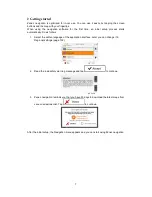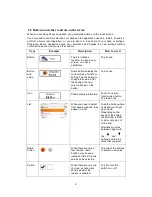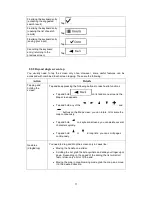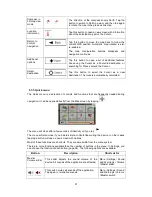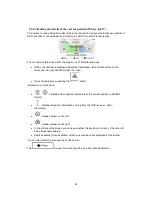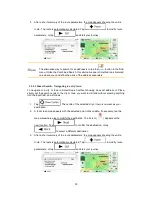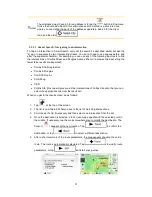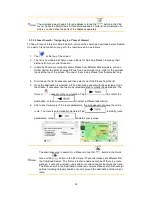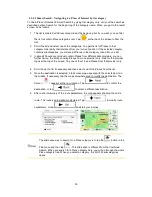
2.3.3.6 3D object types
Zenec navigation supports the following 3D object types:
Type
Description
3D terrain
3D terrain map data shows changes in terrain, elevations or depressions
in the land when you view the map in 2D, and use it to plot the route map
in 3D when you navigate. Hills and mountains are shown in the
background of the 3D map, and illustrated by colour and shading on the
2D map.
Elevated roads
Complex intersections and vertically isolated roads (such as overpasses
or bridges) are displayed in 3D.
3D landmarks
Landmarks are 3D artistic or block representations of prominent or well-
known objects.
3D buildings
3D block representation of full city building data containing actual
building size and position on the map.
2.3.3.7 Elements of the active route
Zenec navigation shows the route in the following way:
Symbol
Name
Description
Current GPS position
and Start point
Your current position displayed on the map. If roads are
near, it is aligned to the nearest road.
Normally if GPS position is available, the route starts from
the current position. If there is no valid GPS position,
Zenec navigation uses the last known position as the start
point.
Waypoint
(intermediate
destination)
An intermediate destination of the route before reaching
the final destination.
Destination (end
point)
The final destination of the route.
Route colour
The route always stands out with its colour on the map,
both in daytime and in night colour mode.
Streets and roads
that are excluded
from the navigation
You can choose whether you want to use or avoid certain
road types (page 95). However, when Zenec navigation
cannot avoid such roads, the route will include them and it
will show them in a colour that is different from the route
colour.
Streets and roads
that are affected by
traffic events
Road segments may be affected by traffic events
received. These streets and roads are displayed in an
alternate colour, and small symbols displayed along the
route show the type of the traffic event.
18




